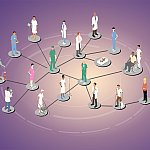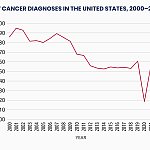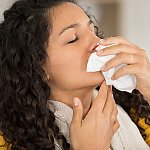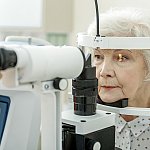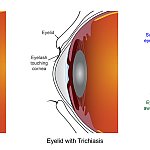
Known for her iconic role in the “Hunger Games” franchise and Emmy-nominated part in “30 Rock,” actress Elizabeth Banks knows how to captivate an audience.
At 51, she’s using her platform to connect with Gen Xers about living healthily into their 50s.
A few years ago, before she turned 50, Banks contracted shingles, a viral infection caused by the varicella-zoster virus, which also causes chickenpox. Shingles typically cause a painful, blistering rash.
“I was misdiagnosed at first because I was a little young to be getting shingles, or so I was told. My symptoms included the classic stuff like a one-sided rash and tingling at the top of my head. I couldn’t sleep and experienced other symptoms, including a burning sensation,” Banks told Healthline.
Shingles was the only medical issue that ever resulted in Banks missing work.
“Suddenly, I felt a little bit my age, and my sense of invincibility was shattered. I felt I needed to take better care of myself in all aspects,” said Banks.
“Shingles is often brought on by stress, and I felt like my body was less able to handle stress, which I’ve lived with forever. I like being stressed out. I like doing a lot of things. And suddenly, I felt like, ‘Oh, I must check myself and look after myself better.’”
She learned that the Centers for Disease Control and Prevention (CDC)
“There is a shingles-specific vaccine that is offered when you turn 50, or after you turn 19 if you are immunocompromised. It’s important to vaccinate against shingles to keep you safe and healthy,” Jen Brull, MD, president of the Board of Directors at the American Academy of Family Physicians, told Healthline.
While Banks said she always follows her doctor’s recommendations for vaccinations, she has become more diligent about staying up to date on vaccinations, including the flu shot, since experiencing shingles.
She recently partnered with Pfizer to spread awareness about respiratory vaccinations for flu, COVID-19, respiratory syncytial virus (RSV), and pneumococcal pneumonia. Visitors to VaxAssist.com can schedule a vaccination appointment and learn more about each vaccine.
“Staying on top of preventive health as we age is critical — it can make the difference between catching something early or dealing with a challenging diagnosis later in life once a condition has progressed,” said Brull.
Brull noted preventive services include vaccinations, cancer screenings like mammograms and colonoscopies, bloodwork, annual wellness exams and tests, and guidance on lifestyle factors like nutrition, exercise, and mental healthcare.
“No matter your age, having a baseline is important. Think of all the things that happen when you get a regular checkup — that’s preventive care,” Brull said.
Healthline recently spoke with Banks to learn more about the importance of midlife vaccinations and how she prioritizes her health in her 50s.
This interview has been edited and condensed for clarity and length.
Banks: I think Gen X is in a precarious spot because we have more access to information about our health and longevity than ever before, but we are also dealing with a lot.
For many of us, we’ve got young kids or teenagers in the house. We’ve got aging parents that we’re dealing with. We’ve got jobs which we’ve worked hard for. I feel like all those stress levels can often make our health not a priority because we have so much else going on.
My real advice is just a reminder to Gen X to look out for themselves too and take care of their health so that they can be there for their families, young and old, and continue excelling in their careers without getting sick.
Banks: I started by looking at my daily habits, particularly my diet and sleep. I’m also experiencing perimenopause, which all Gen X women are going through or are going to go through. That has brought changes in my body that I have to pay attention to.
I do a better job with my diet. I do a better job with exercise. I do a better job prioritizing walking. I do a better job getting enough sleep and lowering stress.
On top of that, I am getting vaccinated and keeping up with preventative health measures. I get my mammograms and my colonoscopies, all the fun stuff.
I came to realize that when you’re 50 or older, you’re more than six times greater risk of contracting pneumococcal pneumonia. Knowing that made me realize there’s a real midlife moment where we have to start paying a little bit better attention so that we can be around as long as possible.
Banks: Perimenopause is happening to me, and menopause is just around the corner. I wish it was coming sooner, to be honest. I’d like to be through this patch of it.
I found that I had to pay closer attention to minor changes. I didn’t feel like myself, and so it was a bit of a wake-up call.
There will be some physical changes happening, and you’re not going to be the same. I ask, “What does that look like going forward?” I loved the opportunity it gave me to analyze my life and prioritize my health.
Menopause is a phase in which menstruation is absent for 12 months. The average age of onset for females is in the early 50s, though it can occur earlier or later.
“Menopause is a gradual process that can take several years and can have physical and emotional impacts,” said Brull.
Perimenopause, meanwhile, is a transitory phase before menopause that can last for a decade or more. This phase is typically when the classic menopausal symptoms begin.
Brull said healthy habits that can help women through the process include:
“Some people find that cutting back on alcohol and caffeine helps manage the sleep changes that come with menopause. Others find that hormone replacement therapy (HRT) is the best way to manage their symptoms,” said Brull.
“There is no one-size-fits-all approach, but keeping healthy habits [is] a great way to ensure you’re doing what is in your control to stay well.”
If you notice that your periods become less regular, you feel more tired, experience hot flashes, or feel pain during intercourse, reach out to your doctor.
In addition to medical care, Brull said hearing other women’s experiences like Banks’ and maintaining a strong social community during menopause is impactful.
“Identifying others in your life who have gone through menopause or are currently experiencing it can help make the experience less isolating,” she said. “If needed, your family doctor can help you find an online or local support group to join.”
